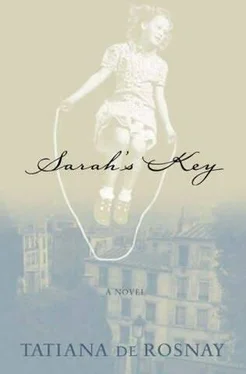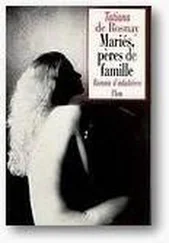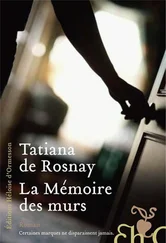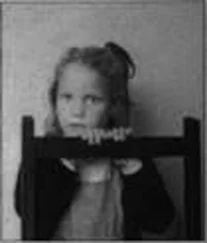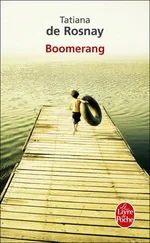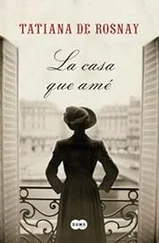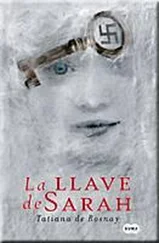I began to feel like a little old lady, shipped here and there, like Mamé was shipped here and there, within the familiar boundaries of her “home,” receiving the same placid smiles, the same stale benevolence. It was easy, letting someone else control your life. I had nothing much to fight for, anyway. Except this child.
The child that Bertrand did not once mention either.

WHEN WE LANDED IN Paris a few weeks later, it felt like an entire year had gone by. I still felt tired and sad. I thought of William Rainsferd every day. Several times, I reached out for the phone, or pen and paper, meaning to talk to him, to write, to explain, to say something, to say sorry, but I never dared.
I let the days slip by, the summer move into fall. I lay on my bed and read, wrote my articles on my laptop, spoke to Joshua, Bamber, Alessandra, to my family and friends on the telephone. I worked from my bedroom. It had all seemed complicated at first, but it had worked out. My friends Isabelle, Holly, and Susannah took turns coming and making me lunch. Once a week, one of my sisters-in-law would go to the nearby Inno or Franprix for groceries with Zoë. Plump, sensual Cécile would make fluffy crêpes oozing with butter, and aesthetic, angular Laure would create exotic low-calorie salads that were surprisingly savory. My mother-in-law came less often but sent her cleaning lady, the dynamic and odorous Madame Leclère, who vacuumed with such terrifying energy it gave me contractions. My parents came to stay for a week in their favorite little hotel on the rue Delambre, ecstatic at the idea of becoming grandparents again.
Edouard came to visit every Friday, with a bouquet of pink roses. He would sit in the armchair next to the bed, and again and again, he would ask me to describe the conversation that took place between William and me in Lucca. He would shake his head and sigh. He said, over and over, that he should have anticipated William’s reaction, how was it that neither himself, nor I, could possibly have imagined that William never knew, that Sarah had never breathed a word?
“Can we not call him?” he would say, his eyes hopeful. “Can I not telephone him and explain?” Then he would look at me and mumble, “No, of course, I can’t do that, how stupid of me. How ridiculous of me.”
I asked my doctor if I could host a small gathering, lying down on my living-room sofa. She accepted and made me promise not to carry anything heavy and to remain horizontal, à la Récamier. One evening in late summer, Gaspard and Nicolas Dufaure came to meet Edouard. Nathalie Dufaure was there as well. And I had invited Guillaume. It was a moving, magical moment. Three elderly men who had an unforgettable little girl in common. I watched them pore over the old photos of Sarah, the letters. Gaspard and Nicolas asked us about William, Nathalie listened, helping Zoë pass around drinks and food.
Nicolas, a slightly younger version of Gaspard, with the same round face and wispy white hair, spoke of his particular relationship with Sarah, how he used to tease her because her silence pained him so, and how any reaction, albeit a shrug, an insult, or a kick, was a triumph because she had for one instant emerged from her secrecy, her isolation. He told us about the first time she had bathed in the sea, at Trouville, in the beginning of the fifties. She had stared out at the ocean in absolute wonder, and then she had stretched out her arms, whooped with delight, and rushed to the water on her nimble, skinny legs, and dashed into the cool, blue waves with screeches of joy. And they had followed her, hollering just as loud, entranced by a new Sarah they had never seen.
“She was beautiful,” Nicolas recalled, “a beautiful eighteen-year-old glowing with life and energy, and I felt that day for the first time that there was happiness within her, that there was hope for her ahead.”
Two years later, I thought, Sarah was out of the Dufaures’ lives, forever, carrying her secret past to America. And twenty years later she was dead. What had those twenty years in America been like, I mused. Her marriage, the birth of her son. Had she been happy in Roxbury? Only William had those answers, I thought. Only William could tell us. My eyes met Edouard’s, and I could tell he was thinking the same thing.
I heard Bertrand’s key in the lock and my husband appeared, tanned, handsome, exuding Habit Rouge, smiling breezily, shaking hands smoothly, and I couldn’t help remembering the lyrics of that Carly Simon song that reminded Charla of Bertrand: “You walked into the party like you were walking onto a yacht.”

BERTRAND HAD DECIDED TO postpone the move to the rue de Saintonge because of the problems with my pregnancy. In this odd, new life I still couldn’t get used to, he was physically present in a friendly, useful way, but not there spiritually. He traveled more than usual, came home late, left early. We still shared a bed, but it was no longer a marital bed. The Berlin wall had sprouted in its middle.
Zoë seemed to take all this in her stride. She often talked about the baby, how much it meant to her, how excited she was. She had been shopping with my mother during my parents’ stay, and they had gone crazy at Bonpoint, the outrageously expensive and exquisite baby-wear boutique on the rue de l’Université.
Most people reacted like my daughter, my parents and sister, and my in-laws and Mamé: they were thrilled by the upcoming birth. Even Joshua, infamous for his scorn toward babies and sick leaves, seemed interested. “I didn’t know one could have kids at middle age,” he had said snidely. No one ever mentioned the crisis my marriage was going through. No one seemed to notice it. Did they all secretly believe that Bertrand, once the child was born, would come to his senses? That he would welcome this child with open arms?
I realized that both Bertrand and I had locked each other into a state of numbness, of not talking, of not telling. We were both waiting for the baby to be born. Then we’d see. Then we’d have to move on. Then decisions would have to be made.
One morning, I felt the baby start to move deep within me, to give those first tiny kicks one mistakes for gas. I wanted the baby out of me, into my arms. I hated this state of silent lethargy, this waiting. I felt trapped. I wanted to zoom to winter, to early next year, to the birth.
I hated the end of summer that lingered on, the fading heat, the dust, the stealthy minutes that oozed by with the laziness of molasses. I hated the French word for the beginning of September, back to school, and the new start after summer: la rentrée, repeated over and over again on the radio, on television, in the newspapers. I hated people asking me what the baby was going to be called. The amniocentesis had revealed its sex, but I had not wanted to be told. The baby did not have a name, yet. Which did not mean I wasn’t ready for it.
I crossed out every day on my calendar. September merged into October. My stomach rounded out nicely. I could get up now, go back to the office, pick Zoë up at school, go to the movies with Isabelle, meet Guillaume at the Select for lunch.
But although my days felt fuller, busier, the emptiness and the ache remained.
William Rainsferd. His face. His eyes. His expression when he had looked down at the little girl with the star. “Jesus.” His voice when he had said that.
What was his life like now? Had he erased everything from his mind the moment he turned his back on Zoë and me? Had he already forgotten once he had reached home?
Or was it different? Was it hell for him because he could not stop thinking about what I had said, because my revelations had changed his entire life? His mother had become a stranger. Somebody with a past he knew nothing about.
Читать дальше
